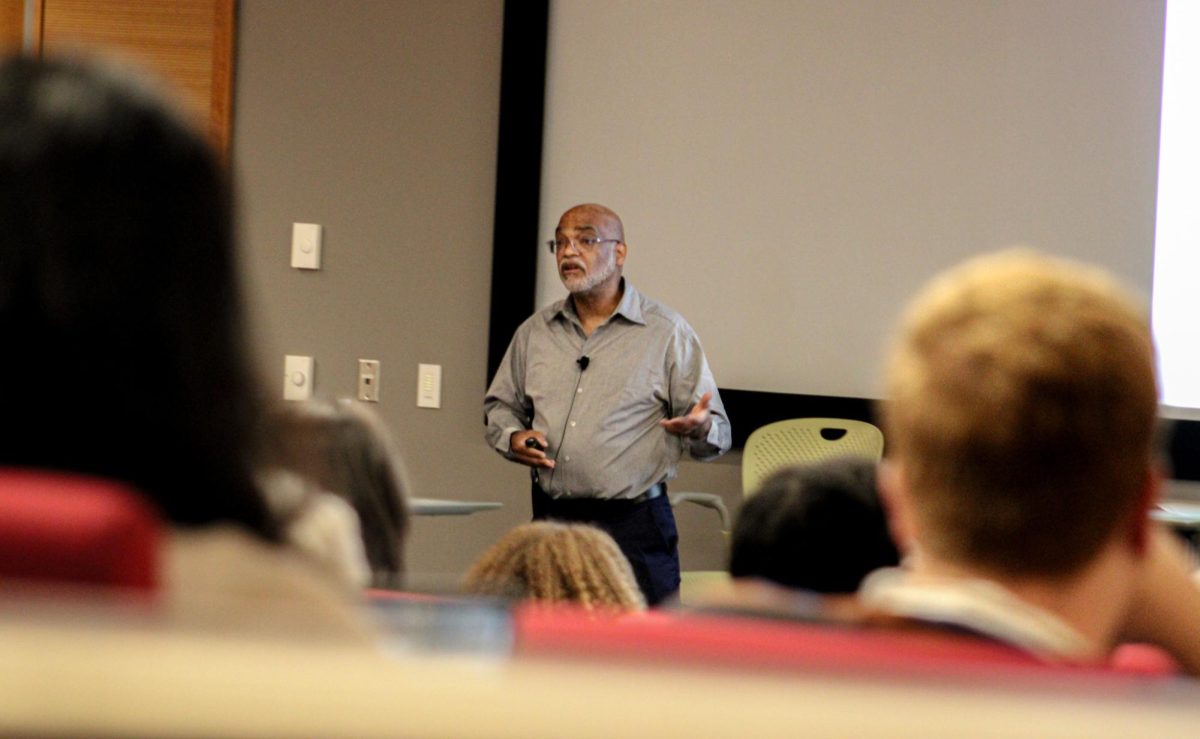The University of Massachusetts Amherst Linguistics Department hosted its annual Freeman Lecture featuring Dr. J. Michael Terry, associate professor of linguistics at the University of North Carolina at Chapel Hill and a UMass alumnus, on Sept. 23 in the Integrative Learning Center.
Dr. Terry presented his research regarding the question, “Can Linguistic Differences Affect African American English Speaking 2nd Graders Performance on Math Tests?”
The event opened with words of recognition from Linguistics Department Chair Professor Seth Cable, who thanked Donald and Margaret Freeman, the founders of the UMass linguistics department and namesake of the event. Cable described the lecture as, “one way of honoring and expressing thanks for [Freeman’s] legacy,” and as a means “to promote more general knowledge and appreciation for the linguistic sciences.”
University Professor Emerita of Linguistics, Barbara Partee, introduced Terry, praising him as “a student UMass could take a chance on … a student underprepared in linguistics but with evident great potential and motivation,” when he studied to earn his Ph.D. at UMass in 2004. She also touched on his connection to Amherst as a local, which Terry cited as inspiration for the topic of the lecture.
“I thought about being from Amherst,” Terry said. “It’s where I learned to value community, the various and multiple communities to which we all belong.”
The linguistic differences between communities became the focus of the evening, particularly how such differences can affect educational performance. Terry and his team administered a sentence processing experiment as well as an orally administered math test to 24 African American English (AAE) speaking 2nd graders from Mariam Boyd Elementary School in Warrenton, North Carolina to monitor their brain waves and record their performances respectively.
Terry had hypothesized that the presence of verbal ‘-s’, a feature of standard classroom English but not AAE would be difficult for the AAE-speaking students to process and therefore lead to poorer performances on both tests.
Word problems, according to Terry, are “language problems as much as math problems.” He and his team found that the students’ performances were hindered when the verbal -s was present in the questions.
Terry then described the implications of the study and the follow-up questions to consider. The findings explained a possible major factor contributing to the underperformance of Black students in math assessments.
“It has nothing to do with their mathematical reasoning,” Terry said. “These tests that we’re giving them are confusing.”
Although the results, as Terry stated, present “a really complicated set of issues that require a lot of thought and careful unpacking,” they also provide hope. In addition to the further research made possible by the study, the findings have potential applications that could benefit various groups of students in different communities and contexts.
“My hope is that the kind of work we’re engaged in will help make us a little wiser,” Terry said.
Emily Albert can be reached at [email protected].







